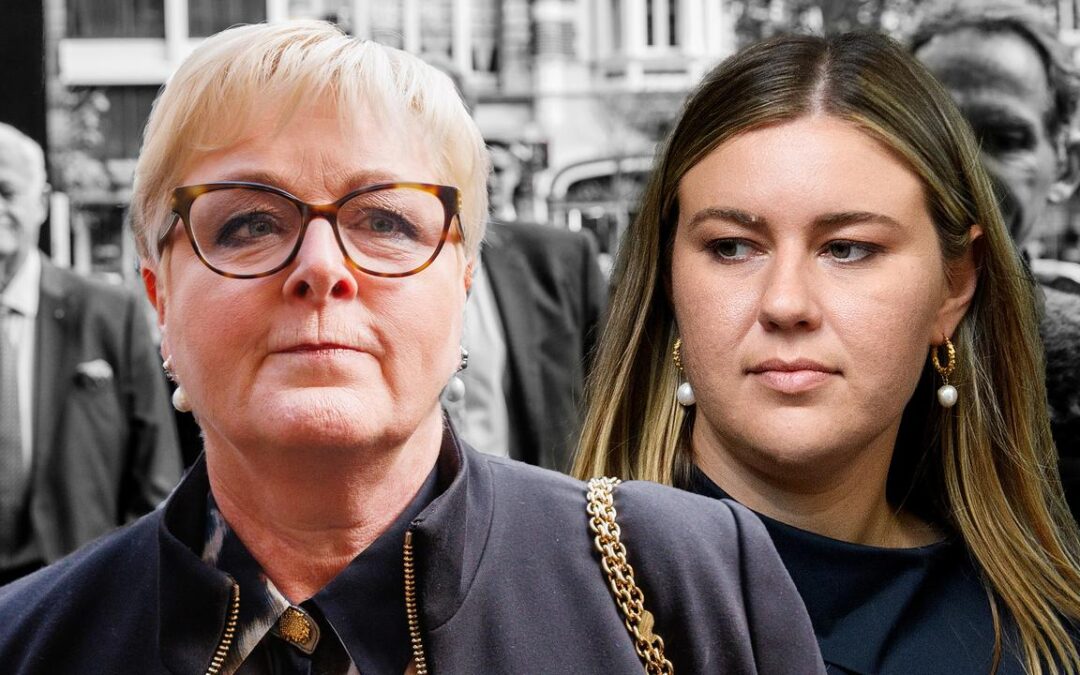
Bid to have Brittany Higgins declared bankrupt stalls
A former senator’s bid to discover where Brittany Higgins’ $2.4 million compensation payout went following their bruising defamation battle has been frustrated by a bankruptcy paperwork glitch.
Ex-Liberal senator Linda Reynolds successfully sued Ms Higgins over a series of social media posts the former defence minister believed damaged her reputation.
Ms Reynolds was awarded damages of $315,000 plus $26,109 interest after Western Australia’s Supreme Court in August found some of the posts were defamatory.
The former political staffer was also ordered to pay 80 per cent of her former boss’s legal costs, which are estimated to be more than $1 million.
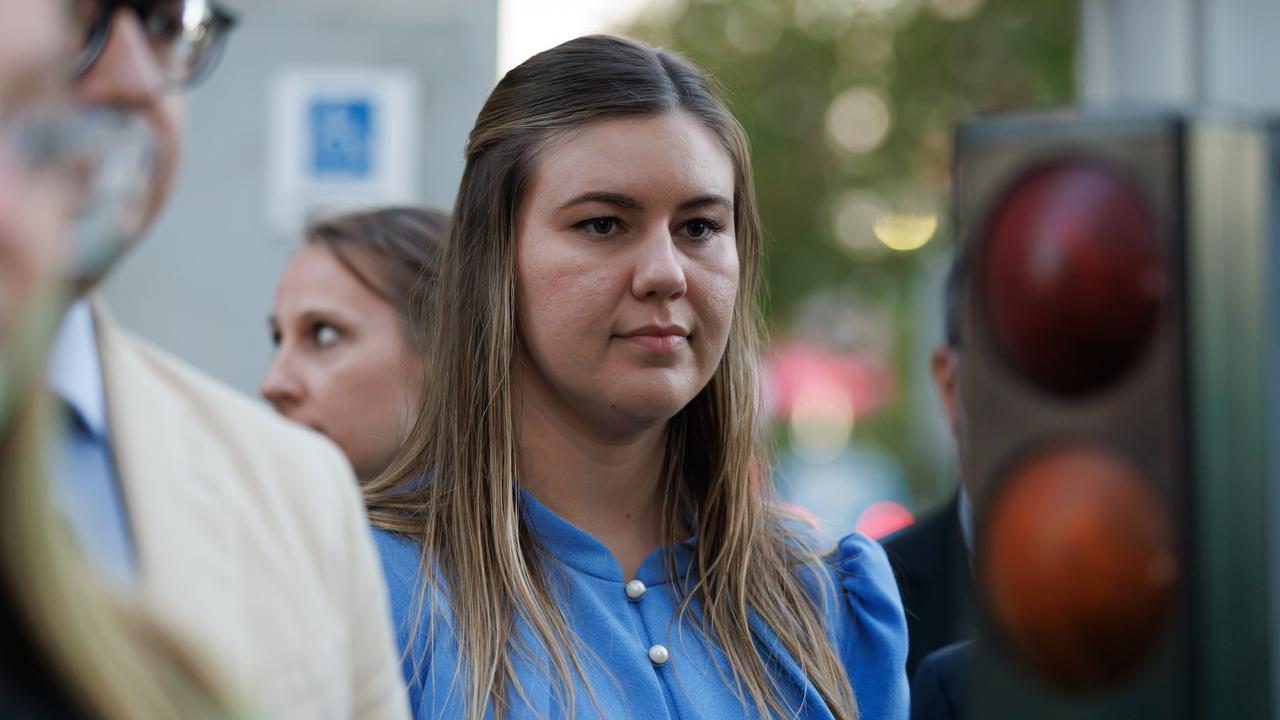
Ms Reynolds launched bankruptcy proceedings in October against Ms Higgins to recoup the costs awarded in her defamation win.
A Federal Court hearing on Tuesday was expected to result in Ms Higgins being declared bankrupt, but a technical issue led to the matter being adjourned.
Ms Reynolds’ lawyer Martin Bennett said his client would continue to pursue Ms Higgins after he had complied with the court’s request for more information.
“(Ms Reynolds) is incredibly disappointed that Ms Higgins got $2.4 million worth of taxpayer money and has paid not a cent towards the judgment against her,” he told reporters outside the court.
“It cost her an enormous amount to prove that dishonest lies had been said about her and not a cent has been recovered.”
If Ms Higgins is rendered bankrupt by a court order, a trustee will be appointed and could investigate a trust Ms Reynolds alleged the former staffer was using to protect her Commonwealth payout.
“Ms Higgins is saying she personally has no money (but) where is the $2.4 million?” Ms Bennett said.
Ms Higgins apologised to Ms Reynolds after the former defence minister emerged victorious from the duo’s high-profile five-week defamation trial.
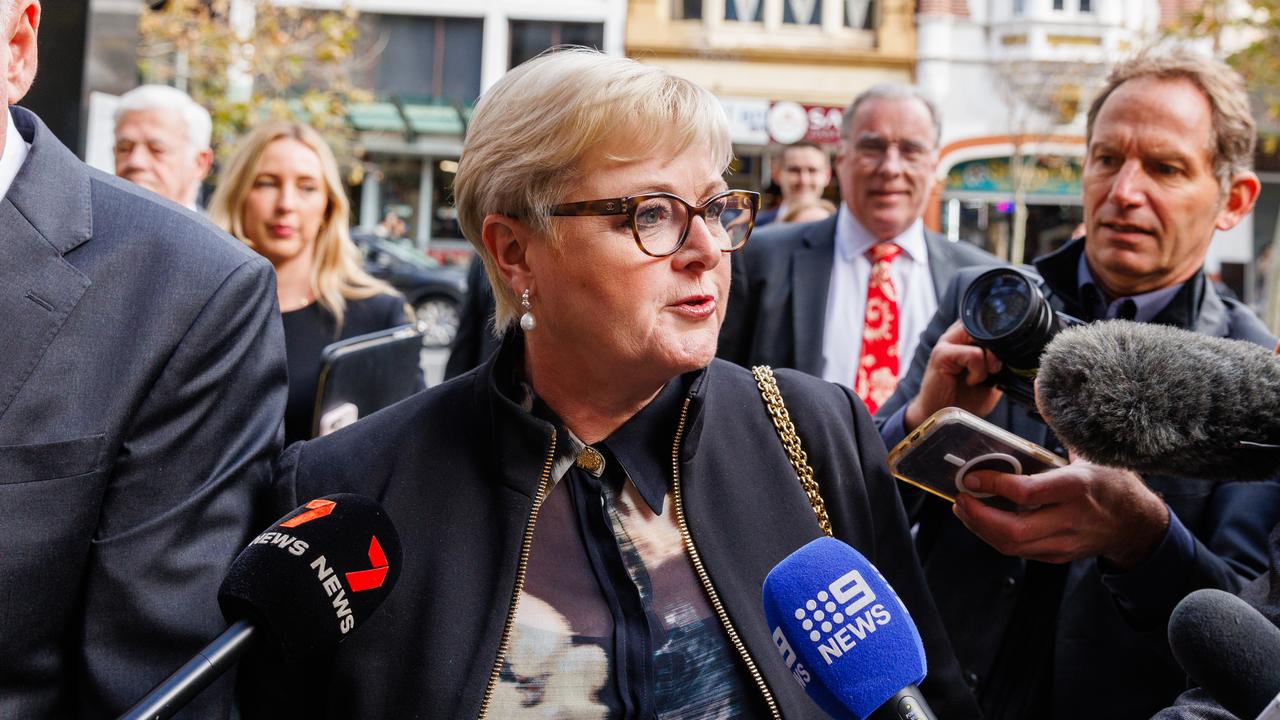
Justice Paul Tottle found Ms Higgins’ social media posts carried an array of imputations.
They included that Ms Reynolds engaged in a campaign of harassment against Ms Higgins, mishandled her rape allegation and engaged in questionable conduct during Bruce Lehrmann’s aborted criminal trial for rape.
The 360-page judgment made factual findings about the events involving Ms Reynolds and Ms Higgins, including her alleged 2019 rape and the events in the years after it.
Ms Higgins made 26 false or misleading statements in media interviews after her alleged sexual assault, the judgment said.
She alleges former co-worker Lehrmann raped her in the senator’s ministerial suite.
A Federal Court judge overseeing a defamation case launched by Lehrmann against Network Ten found Ms Higgins was, on the balance of probabilities, raped by her former co-worker in the office.
Lehrmann is appealing that finding.
He has always denied the rape allegation and his criminal trial was derailed by juror misconduct.
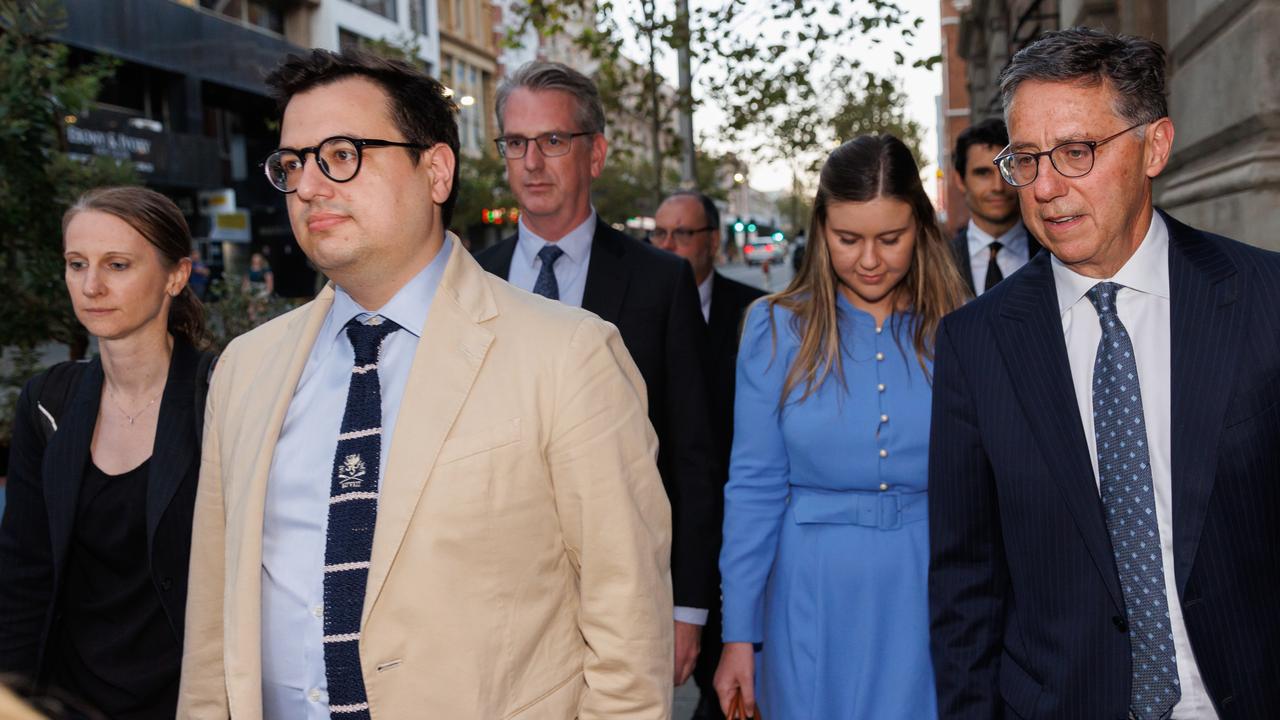
Ms Higgins’ husband David Sharaz was also served with a bankruptcy notice by Ms Reynolds and is expected to declare bankruptcy.
He was also found to have defamed the former politician and was ordered to pay $85,000 in damages plus interest and costs.
Ms Higgins’ bankruptcy matter will return to the same court next Tuesday.
1800 RESPECT (1800 737 732)
National Sexual Abuse and Redress Support Service 1800 211 028
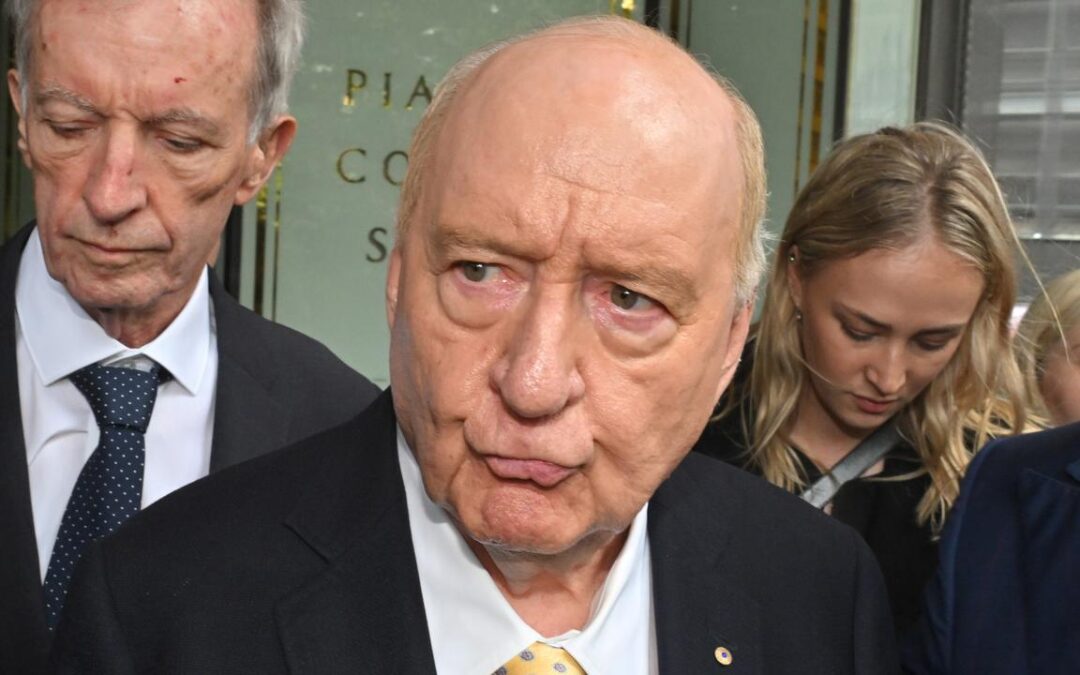
Alan Jones’ concerns ahead of mammoth sex abuse hearing
A mammoth sex abuse hearing against Alan Jones has been locked in despite claims the radio host was kept in the dark about the police investigation against him.
The 84-year-old faces 25 charges of indecent assault and two of sexual touching against nine alleged victims.
There were 139 prosecution witnesses in the case, crown prosecutor Emma Curran told Downing Centre Local Court on Tuesday.
Efforts to reduce these numbers had stalled because Jones would not say which senior counsel he had briefed, she told Magistrate Glenn Walsh.
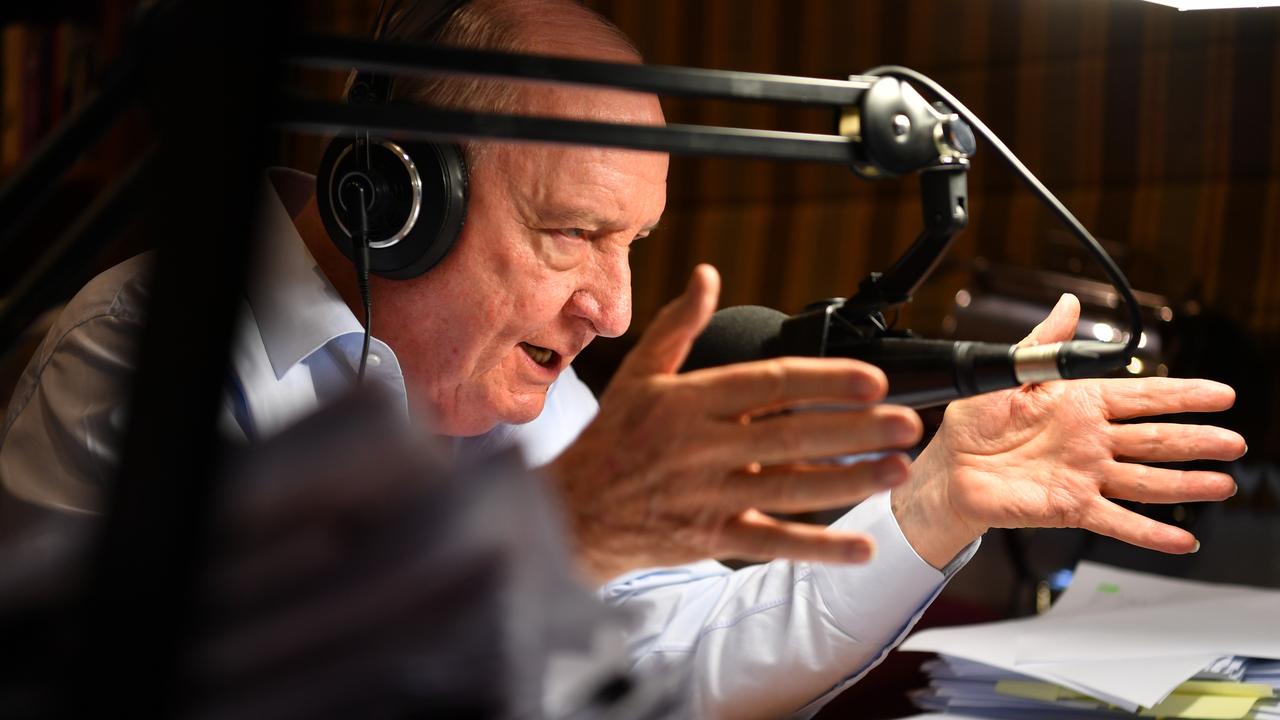
Defence solicitor Bryan Wrench said his client would also call his own witnesses, saying “we believe there is an iceberg of exculpatory material”.
Jones’ legal team has asked prosecutors to reconsider a decision made in September to hold the lengthy hearing in the Local Court instead of before a District Court jury.
The radio host, who denies the charges, was charged after an investigation by Sydney Morning Herald journalist Kate McClymont in 2023.
McClymont had declined to provide notes of her investigation or interviews with witnesses to Jones’ defence team, Mr Wrench said on Tuesday.
Journalists often speak with sources under strict confidence and are not automatically required to divulge information to defence lawyers.
Mr Wrench also said police had refused to confirm whether their investigation against the former radio host was complete.

Without these details, Jones did not know the case he was meant to answer and may not be ready for a hearing in the second half of 2026, Mr Wrench told the court.
“Whilst he’s been deprived of a jury trial, we don’t want to deprive Mr Jones of a fair hearing in this court.”
The magistrate tersely shut down the solicitor’s submissions, setting down dates for hearing.
The hearing will start on August 3 and could run until December.
The case will return to court on November 20 for further management.
Mr Wrench did not speak to reporters outside court.
Jones had faced allegations of historical sex offences against 11 individuals – the youngest of whom was then aged 17 – until prosecutors reconfigured their case in September.
Claims involving two alleged victims were dropped and accusations the conduct was aggravated or that Jones held power or authority over his alleged victims were withdrawn.
The former radio shock jock has pleaded not guilty to all charges.
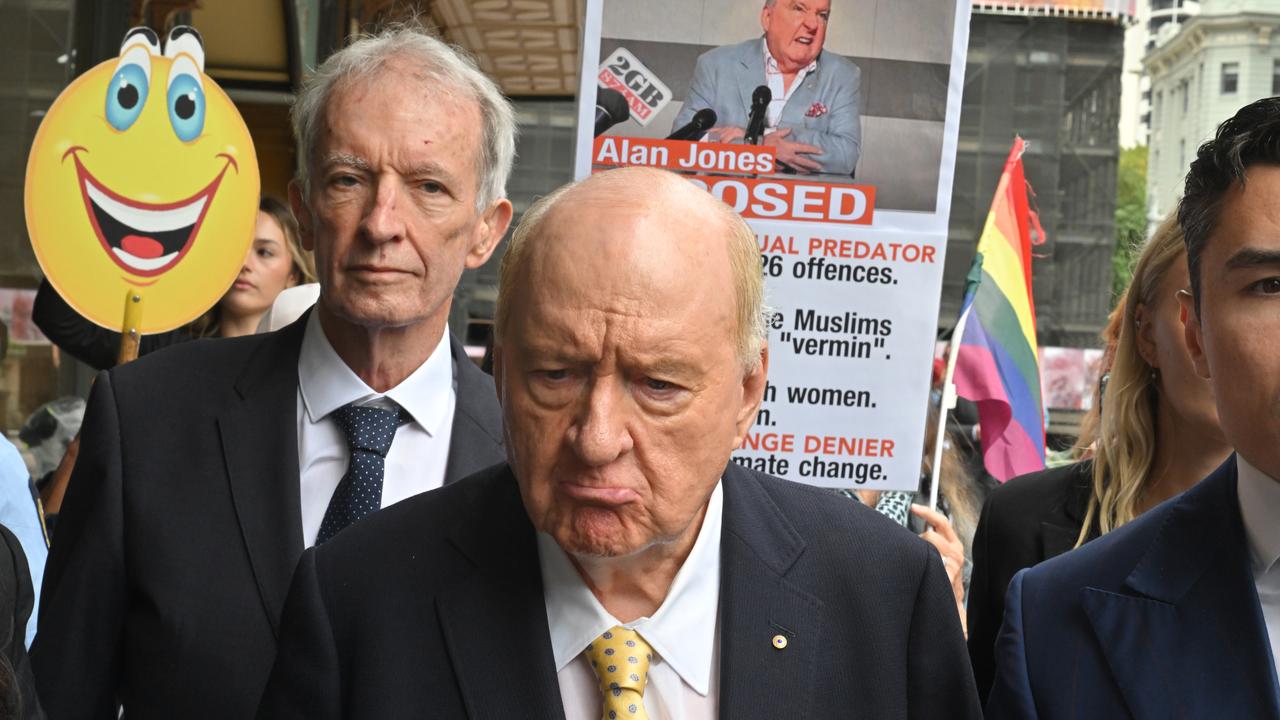
The remaining allegations against Jones suggest a pattern of indecent assaults between 2003 and 2020.
Jones’ sexual misconduct is alleged to have occurred behind closed doors as well as in public spaces such as restaurants, the Sydney Opera House and when two of the complainants were driving him around.
The 84-year-old was arrested in November 2024 after an eight-month police investigation.
The charges, which he has claimed are “all either baseless or they distort the truth”, followed a hugely influential broadcasting career launched in 1985.
Jones became a feared interviewer who excelled at questioning leaders while dividing audiences with his outspoken views.
He worked with Sydney radio station 2UE before joining rival 2GB, where he was a long-time ratings juggernaut until 2020.
Alongside a failed tilts at politics, he also coached the Australian national men’s rugby union team through some historic achievements between 1984 and 1988.
1800 RESPECT (1800 737 732)
National Sexual Abuse and Redress Support Service 1800 211 028
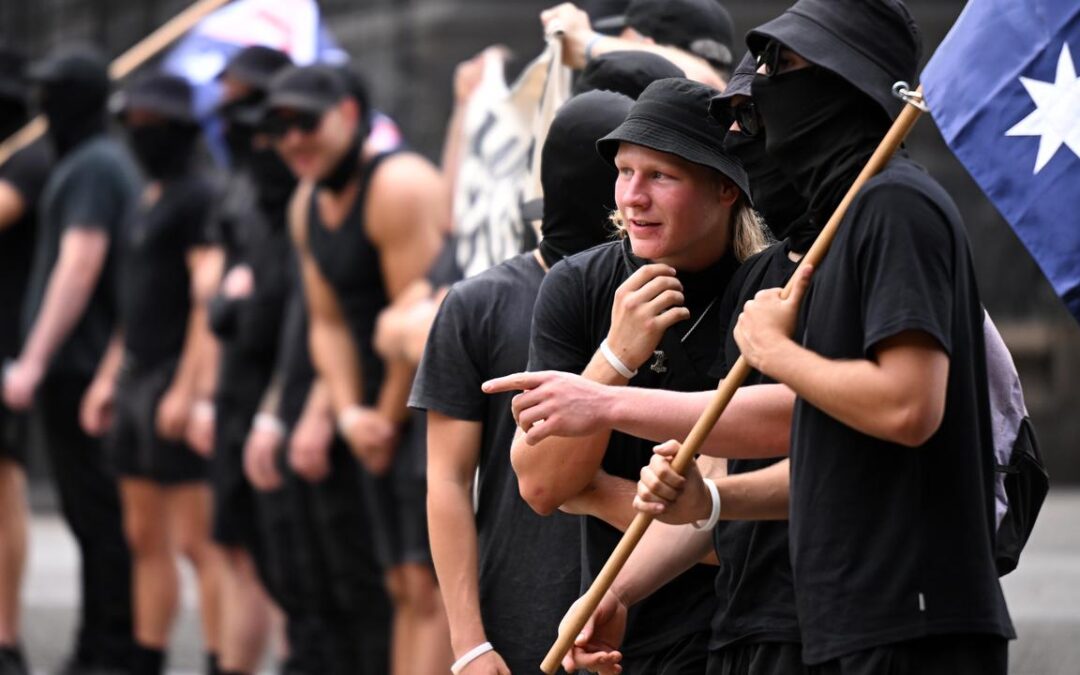
PM demands more action on Nazi chants after ‘stuff-up’
Anthony Albanese is backing calls for changes to hate speech after dozens of black-uniformed men shouted racist Nazi-inspired slogans in another fascist gathering.
The prime minister joined the chorus of condemnation of some 60 demonstrators linked to the Nationalist Socialist Network who assembled outside NSW parliament on Saturday.
They shouted Nazi slogans and unfurled a large banner with the slogan “Abolish the Jewish Lobby”.
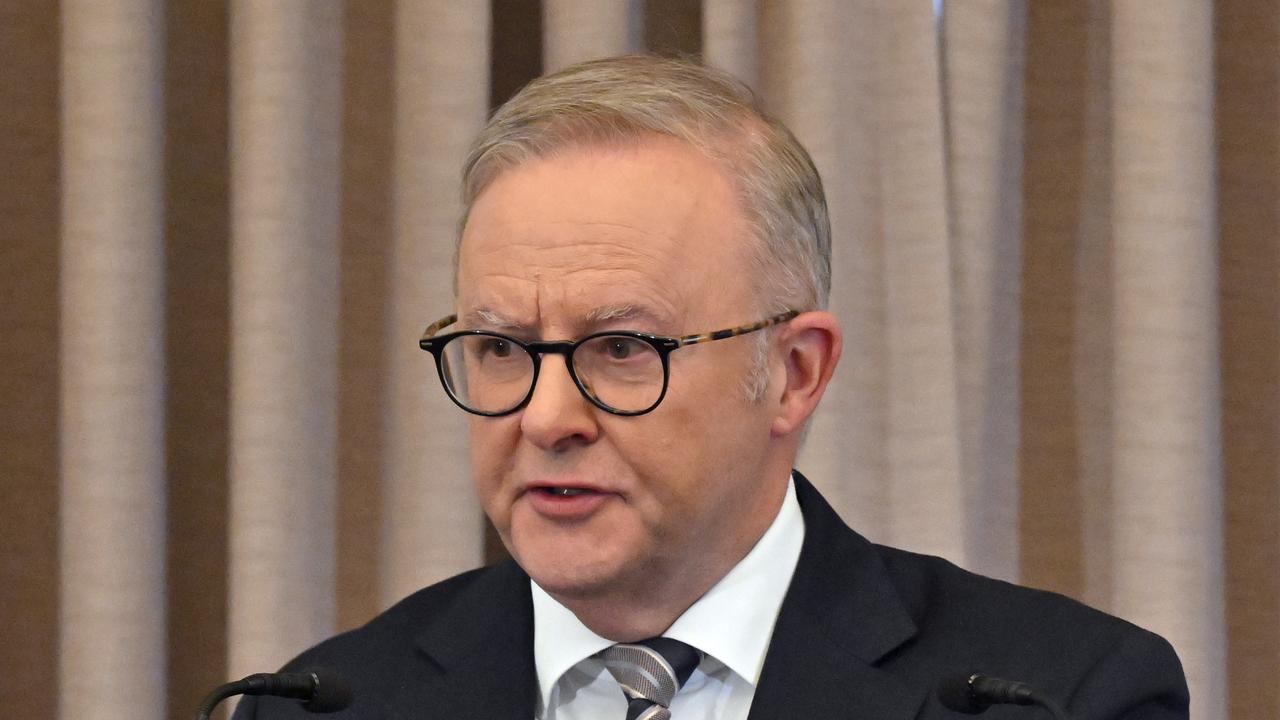
“Free speech is not about the right to vilify and to engage in anti-Semitic behaviour and to encourage hatred and division and violence, which is where this all leads,” Mr Albanese told ABC Radio on Tuesday.
“This rise of people openly identifying as Nazis has no place in Australia.”
Premier Chris Minns said he would aim to legislate new laws cracking down on hate speech in the coming weeks after attendees at the rally chanted “blood and honour”, which is a Hitler youth slogan.
“We need to draw bigger, bolder, bright lines between hate speech and free speech so that those scenes are not repeated,” he told reporters on Monday.
“It’s illegal to have Nazi symbols in NSW but not the Nazi speeches or Nazi slogans.”
Federal parliament in February mandated courts jail anyone displaying a Nazi symbol for at least a year and for up to five.
Mr Albanese also criticised the NSW protest permit system after police were given a week’s notice about the neo-Nazi rally but decided against taking it to court.
“The fact that these Nazis in NSW notified the police and were essentially given permission to conduct such a hateful activity is completely unacceptable,” the prime minister said.
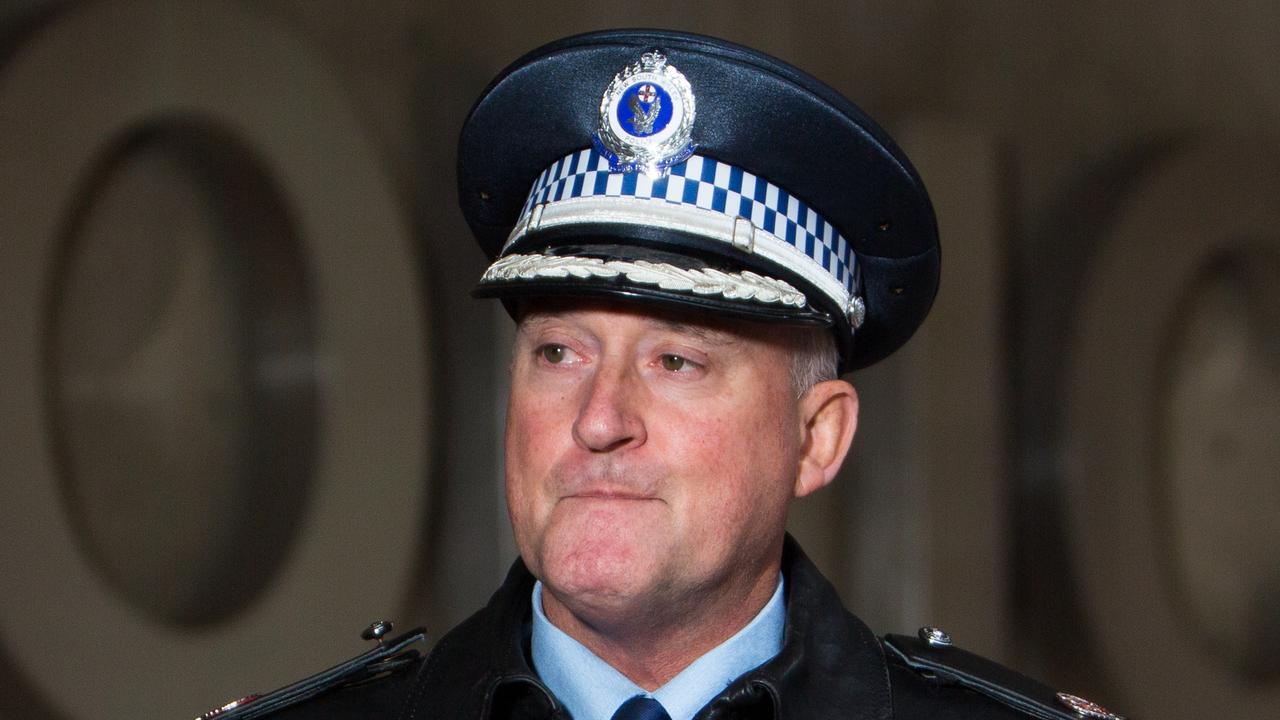
Assistant NSW Police Commissioner Peter Thurtell reportedly apologised to newly installed Commissioner Mal Lanyon for not informing him of the protest, deeming it an oversight on his part.
“In hindsight, the nature of the ‘White Australia’ group is of such political interest and community interest to our organisation, that I should’ve advised the commissioner that this protest was taking place,” he told the Daily Telegraph.
Police sought legal advice about a potential court challenge but were told it would likely fail.
The communication breakdown had been described by federal MP Allegra Spender and Liberal state MP Kellie Sloane, both targets of violent sexual threats on social media from neo-Nazis, as a “complete stuff-up”.
The same fringe group had rallied outside parliament in June when participants wore black uniforms and displayed a banner with the words “End Immigration”.
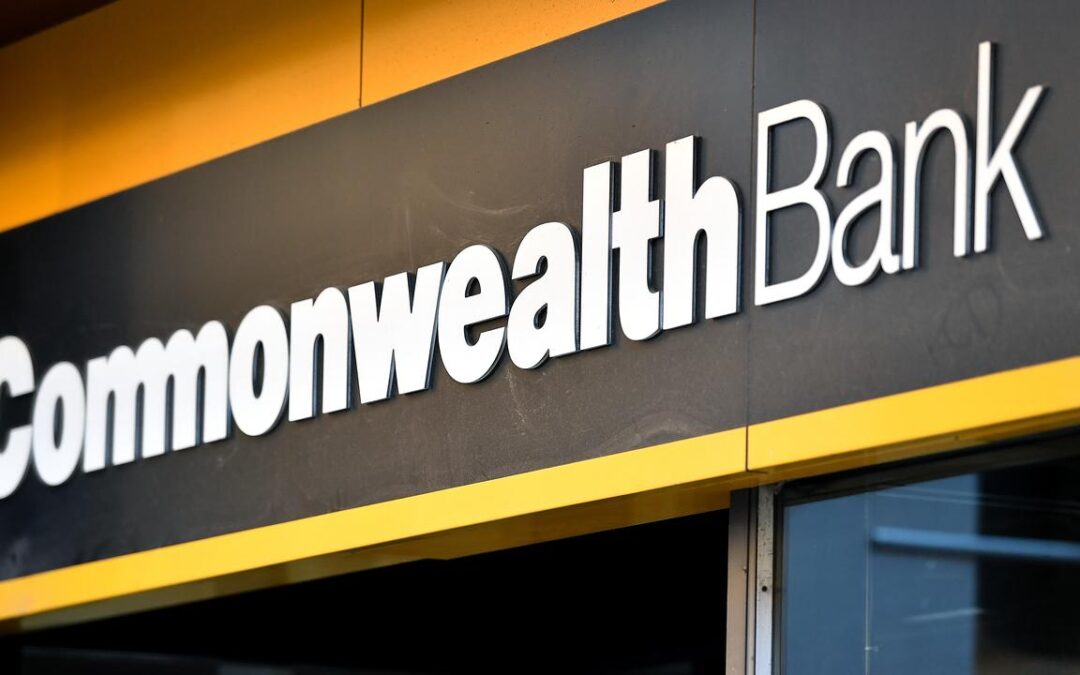
CommBank shares drop despite $2.6b quarterly profit
The Commonwealth Bank has posted an eye-watering $2.6 billion unaudited first-quarter cash profit, buoyed by growth in home loans and deposits.
Despite the result putting Australia’s biggest company on track to beat its record $10 billion 2025 full-year profit, investors dumped CBA shares, which tumbled 3.7 per cent to $168.51 in early trade.
Lofty valuations in Australia’s heavyweight and highly established financials sector has prompted analysts to question the source of its future growth.
CBA’s result was one per cent higher than the recent average and up two per cent on the same quarter in 2024.
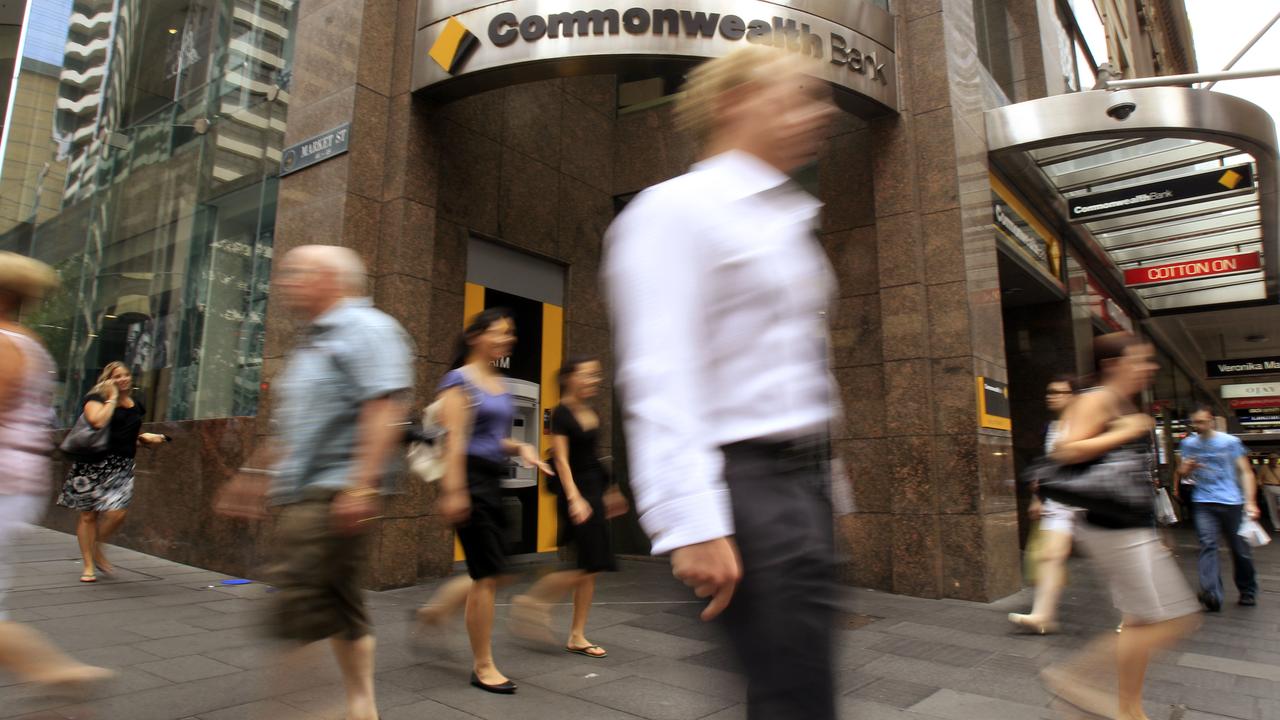
Operating income was up three per cent, driven by lending and deposit volume growth.
Households and businesses were still facing significant cost-pressures but the bank was committed to supporting customers, CBA chief executive Matt Comyn said.
“Despite escalating geopolitical and macroeconomic uncertainty, we are optimistic on the outlook for the country,” Mr Comyn said.
“We are closely watching the increased competitive intensity and implications across the financial system, and we will continue to adjust our settings as appropriate.”
The negative investor result came despite the results tracking with forecasts, however an unquantified contraction in CBA’s net interest margin – the difference between a company’s interest costs and returns – had caused concern, IG Markets analyst Tony Sycamore said.
“Furthermore even after its pullback from the $192.00 high of late June, the stock remains expensive on some metrics,” he said.
CBA has a total value of more than $281 billion and employs around 50,000 people.
CommBank’s much smaller competitor the Bendigo and Adelaide Bank also sold off after reporting on Tuesday, its shares tumbling 3.2 per cent to $12.32.
The dip was easier to understand than CBA’s, after its cash earnings slipped 3.2 per cent to $120.7 million in the September quarter.
Bendigo’s balance sheet remained well-positioned for a return to growth in the second half, managing director and chief executive Richard Fennell said.
“During the quarter, we delivered several strategic milestones which will position the bank for sustainable growth in the second half of this financial year and beyond.
Australian banks have won mixed receptions to recent financial updates, with NAB shares tumbling more than four per cent and Westpac up 3.6 per cent since posting their respective full-year results.
ANZ shares are up almost five per cent to record highs since its report, the smallest of the big four banks getting a boost from taking a hard line on executive bonuses and playing catch-up with its competitors’ hefty price tags.
Shares in investment giant Macquarie Group tumbled almost six per cent immediately after its first-half profits came in more than ten per cent below expectations, after commodity prices and wind asset write downs weighed on its result.
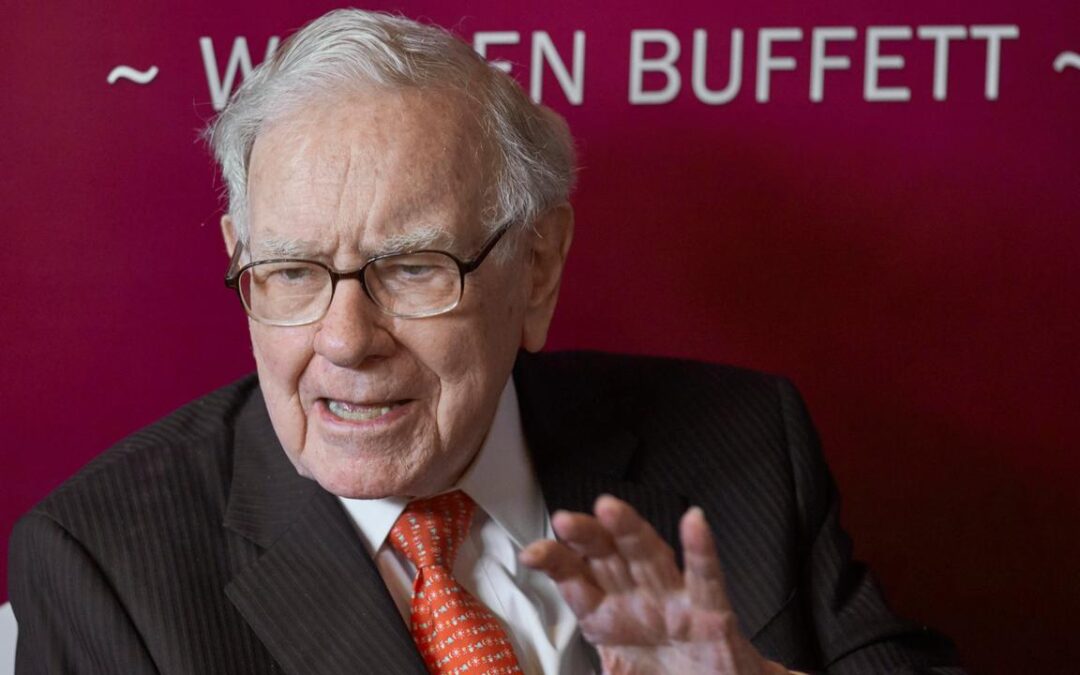
Buffett ‘going quiet’ when he finishes as Berkshire CEO
Warren Buffett has told Berkshire Hathaway shareholders they should stick around as he prepares to depart as chief executive, giving a full-throated endorsement to his successor Greg Abel and promising to remain a major shareholder.
In a letter to Berkshire shareholders, likely his last before he steps down at year-end, the 95-year-old Buffett said he will be “going quiet” as Abel takes the lead in communicating with them.
Buffett also downplayed recent declines in Berkshire’s stock price, saying Abel has “more than met” his high expectations when he first thought the 63-year-old was CEO material, and simply needs time to gain investors’ confidence.
“I can’t think of a CEO, a management consultant, an academic, a member of government – you name it – that I would select over Greg to handle your savings and mine,” Buffett wrote.
“He is a great manager, a tireless worker and an honest communicator. Wish him an extended tenure.”
Abel will take over writing Berkshire’s annual shareholder letters and leading its annual meetings. Buffett, who will remain chairman, plans to keep communicating with shareholders around the Thanksgiving Day holiday.
“As the British would say, I’m ‘going quiet,'” Buffett wrote.
He nonetheless said “to my surprise, I generally feel good,” and that “though I move slowly and read with increasing difficulty, I am at the office five days a week where I work with wonderful people.”
Buffett has led Berkshire since 1965, transforming it from a failing textile company to a $US1.07 trillion ($A1.64 trillion) conglomerate with nearly 200 businesses.
In his letter, Buffett announced plans to speed up his charitable donations to family foundations led by his daughter Susie, 72, and sons Howard, 70, and Peter, 67.
He assured that the change “in no way reflects any change in my views about Berkshire’s prospects.”
Referring to long-time second-in-command Charlie Munger, who died in 2023, Buffett also said he wants to keep a significant number of Class A shares “until Berkshire shareholders develop the comfort with Greg that Charlie and I long enjoyed.”
“That level of confidence shouldn’t take long,” Buffett added. “My children are already 100 per cent behind Greg as are the Berkshire directors.”
Buffett donated more than $US1.3 billion of Berkshire stock, the equivalent of 1,800 Class A shares, on Monday to four family foundations led by his children.
He has donated more than half his Berkshire shares since 2006, mainly to the Gates Foundation, but still owns close to 14 per cent of the Omaha, Nebraska-based conglomerate’s stock.
Buffett is worth $US148.2 billion, according to Forbes magazine.
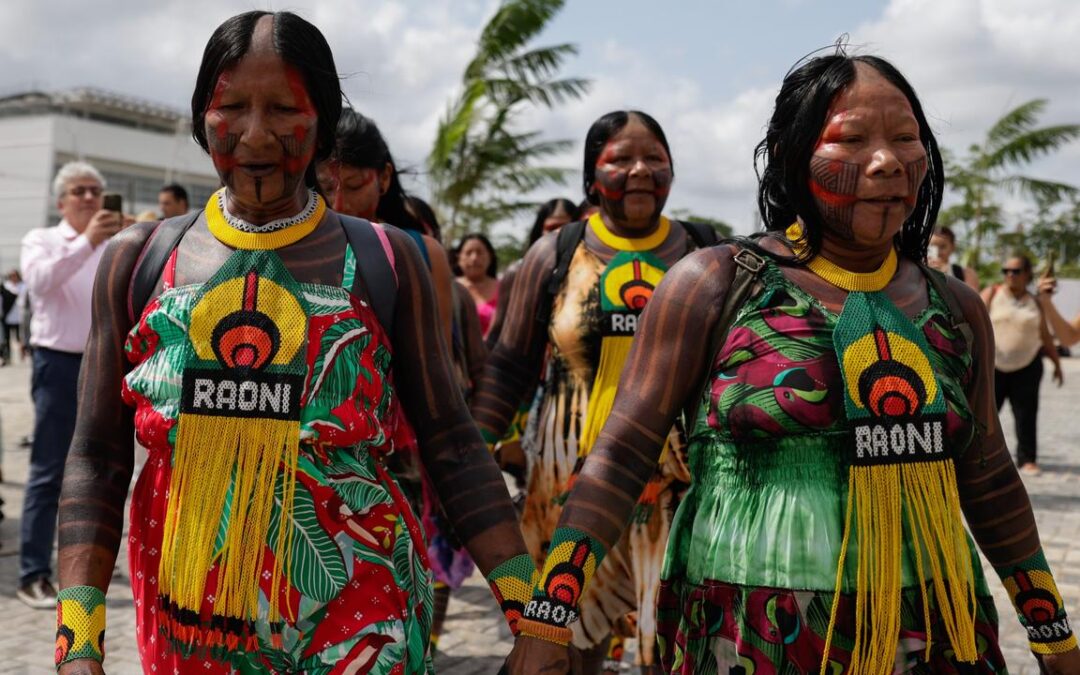
COP30 talks open with a plea for countries to get along
The COP30 climate summit has opened with the UN climate chief urging countries to cooperate, as a fracturing international consensus limits efforts to rein in global warming.
Host country Brazil brokered a deal on the agenda for the two-week summit in the Amazon city of Belem, deflecting attempts by developing-country negotiating blocs to shoehorn contentious issues like climate finance and carbon taxes into the talks.
It was unclear whether countries would aim to negotiate a final agreement for the end of the event – a hard sell in a year of fractious global politics and US efforts to obstruct a transition away from fossil fuels.
Some, including Brazil, have suggested that countries focus on smaller efforts that do not need consensus, such as tackling deforestation, after years of COP summits making lofty promises only to leave many unfulfilled.
“In this arena of COP30, your job here is not to fight one another – your job here is to fight this climate crisis, together,” UN Climate Change executive secretary Simon Stiell said.
He said three decades of UN climate talks had helped to bend the curve in projected warming downward.
“But I am not sugar-coating it. We have so much more work to do,” he said.
A new UN analysis of countries’ emissions-cutting plans estimated that global greenhouse gases would decrease 12 per cent by 2035 from 2019 levels, improving on an earlier estimate of 10 per cent published last month.
The new figure takes into account the most recent pledges, including those from China and the EU.
But it was still short of the 60 per cent emissions drop needed by 2035 to limit global warming to 1.5 degrees Celsius above pre-industrial temperatures – the threshold beyond which scientists say climate change would unleash far more severe impacts.
Brazilian President Luiz Inacio Lula da Silva warned against interests trying to obscure the dangers of climate change.
“They attack the institutions, the science, the universities,” he said.
“It’s time to impose another defeat to denialists.”
The world’s biggest historical emitter of greenhouse gases – the United States – opted to skip the summit; US President Donald Trump falsely asserts that climate change is a hoax.
California Governor Gavin Newsom and New Mexico Governor Michelle Lujan Grisham were expected in Belem on Tuesday.
“What the hell is going on here?” Newsom said of the US government’s absence from the talks, addressing a global investors summit held on Monday in Sao Paulo.
COP30 President Andre Correa do Lago told a news conference: “I think that the absence of the US … has opened some space for the world to see what developing countries are doing.”
Germany said European countries would push for commitments to rein in fossil fuel use – a goal promoted by Lula.
“We will advocate for something strong,” German Vice Minister Jochen Flasbarth told Reuters.
Countries were joined by indigenous leaders, who arrived on Sunday by boat after travelling some 3000 km from the Andes.
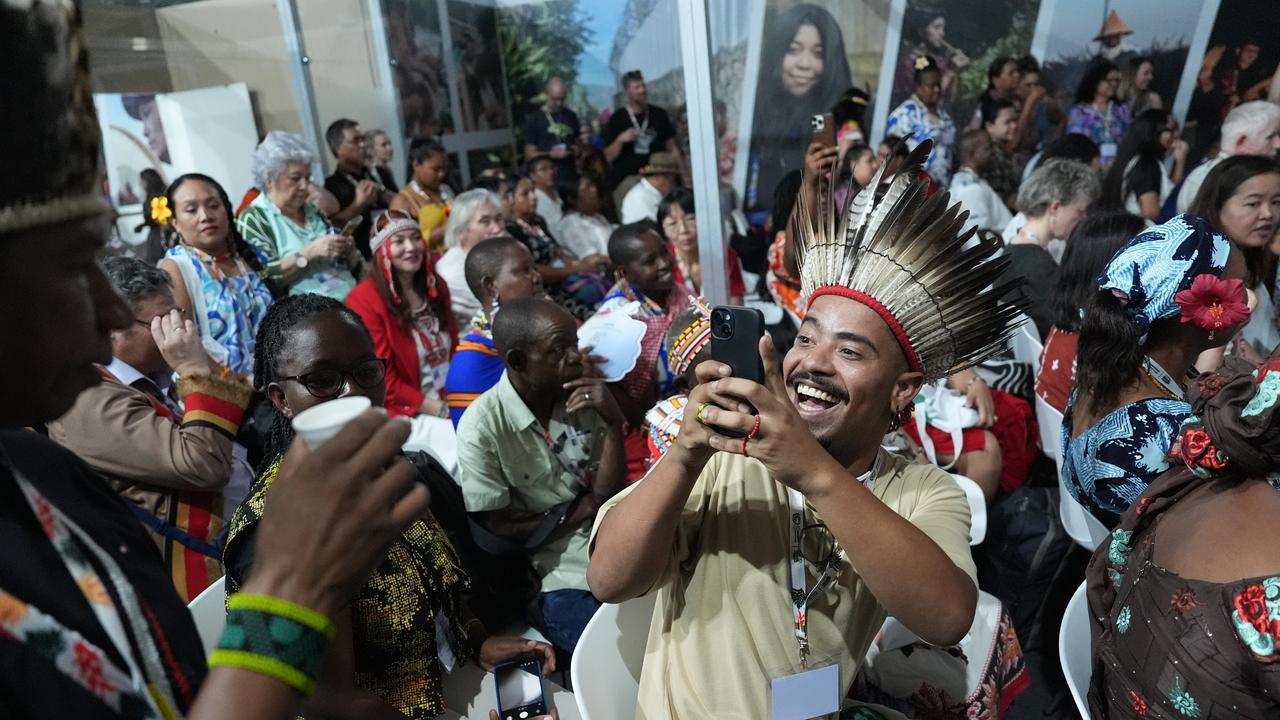
They are demanding more say in how their territories are managed as climate change escalates and industries such as mining, logging and oil drilling push deeper.
“We want to make sure that they don’t keep promising, that they will start protecting, because we as indigenous people are the ones who suffer from these impacts of climate change,” said Pablo Inuma Flores, an indigenous leader from Peru.
Scientists at dozens of universities and international science institutions sounded an alarm over the world’s thawing glaciers, ice sheets, and other frozen spaces.
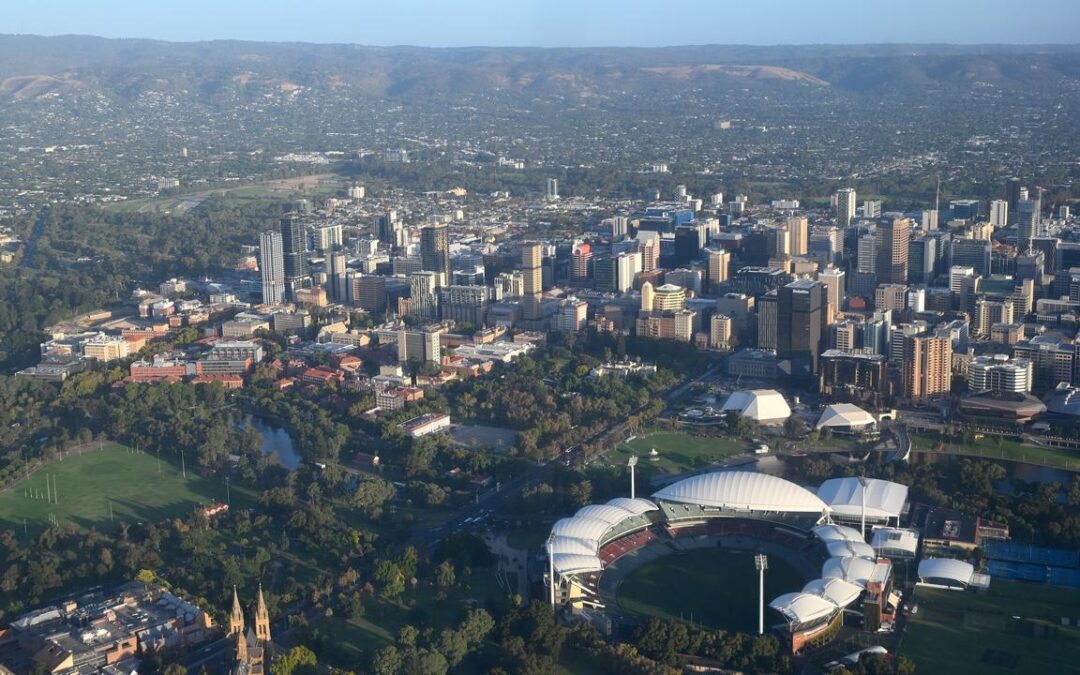
State named ‘best for business’ for third straight year
South Australia has taken out a hat-trick in an annual ranking of the best states to do business in Australia, earning top marks for regulatory costs and planning approvals.
The state set the benchmark for the third consecutive year with its competitive payroll tax settings, planning system and licensing requirements, according to the Business Council of Australia’s latest report, released on Tuesday.
As governments across Australia look to make it easier to build new homes to boost housing supply and affordability, South Australia has shown more consistency and certainty for applicants, the report found.
It also had the lowest payroll tax rate, the second-least onerous licensing system and relatively low land tax and stamp duty burdens.
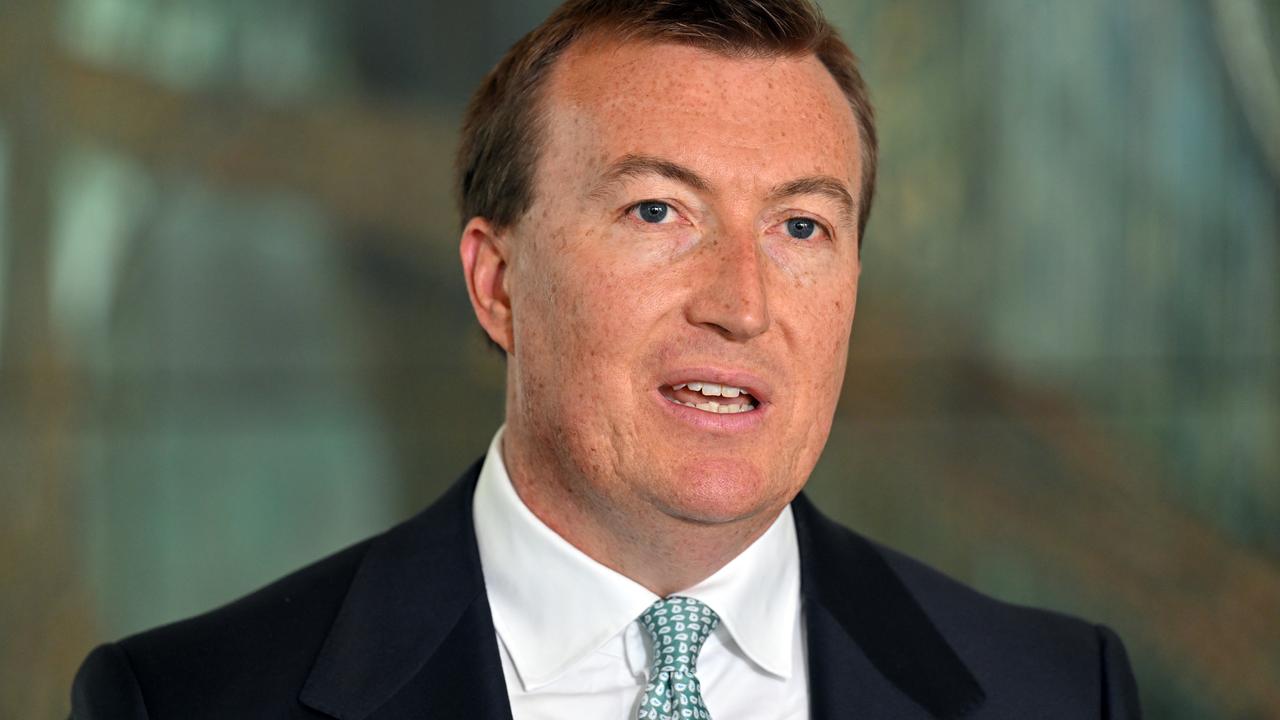
“South Australia is leading the nation and shows us that cutting unnecessary red tape and designing efficient regulations is not just good for business – it’s good for workers and communities,” council chief executive Bran Black said.
It’s another feather in the cap for the SA government, which is cruising along in the polls ahead of a 2026 state election.
“We are a pro-business Labor government with a desire to get our state moving,” Premier Peter Malinauskas said.
“The approach is delivering real results, in a way our state is not accustomed to.”
Surprisingly, Tasmania was ranked the second-best place to do business, with the Northern Territory in third and the ACT fourth.
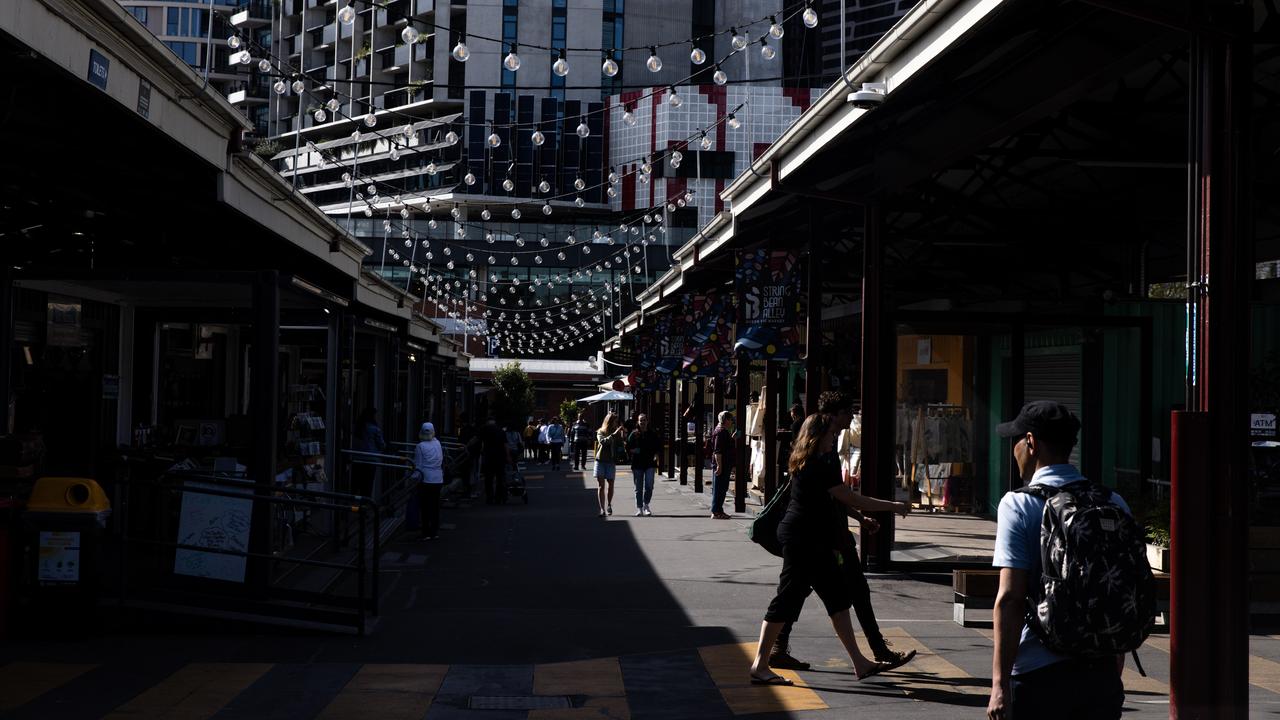
Once again, Victoria came in last due to its onerous business licensing requirements and high property and payroll taxes.
“The success of Victoria matters, and practical reforms to payroll tax, property taxes, and business licensing would deliver a big boost to the state’s ability to win investment,” Mr Black said.
With a year to go until the next Victorian election, published polls have Labor on track to hold on for a fourth term, despite the ageing Allan government facing criticism over mounting debt and a growing crime rate.
NSW came in fifth place overall, but Mr Black applauded the nation’s most populous state for recent reforms to building approvals, which would speed up the delivery of new homes but were passed too late to be considered in the report.
The report also highlighted that the ACT and the NT had the least restrictive trading hours.
“Christmas is approaching and states like Queensland and South Australia could get more bang for buck from their retail sectors if they allowed businesses to open for longer and when it suits them,” Mr Black said.
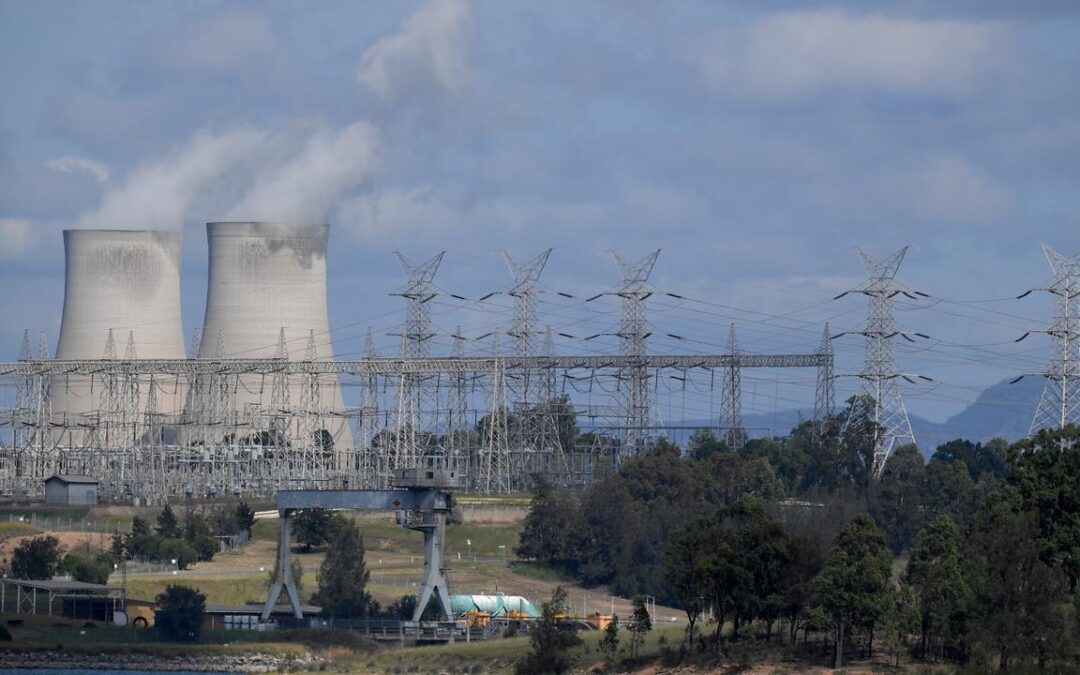
Liberal climate plan could create legal headaches
A compromise climate policy being mulled by the Liberals would put Australia in breach of its international obligations and risk legal consequences, experts say.
Ahead of a crucial meeting of Liberal MPs and senators on Wednesday, party insiders say they’re likely to agree to water down Australia’s climate ambition if they return to government while retaining a commitment to reaching net zero carbon emissions at some point.
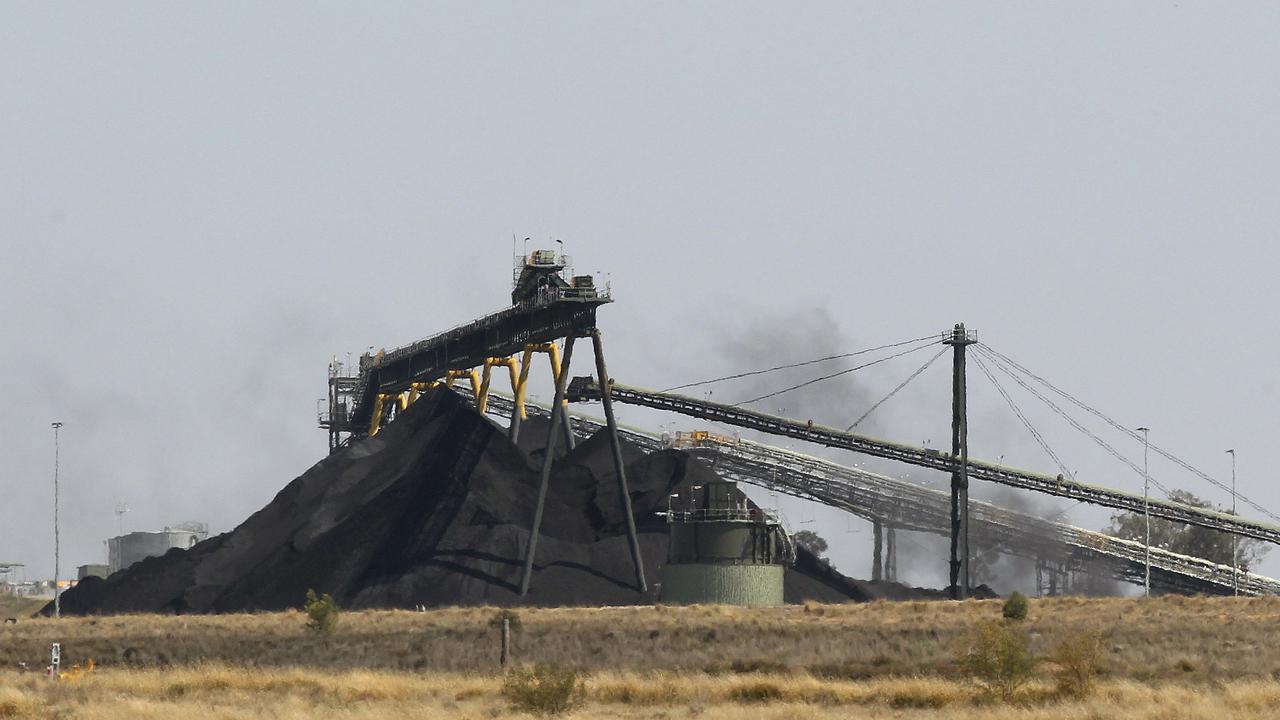
Australia signed up to the Paris accord in 2015 under then-prime minister Tony Abbott, promising to limit its greenhouse gas emissions as part of a global push to tackle global warming.
Six years later, the Morrison government set a target of net zero emissions by 2050, and Labor has since set more ambitious climate goals including a 62 to 70 per cent reduction in carbon pollution by 2035.
Debate over the coalition’s climate policy restarted in earnest after Labor’s May election win, and the issue now threatens to engulf Sussan Ley’s leadership.
Junior coalition partner the Nationals have announced a plan to ditch a formal climate target and instead tie emissions reductions to an average of OECD countries.
University of Queensland climate and environmental law expert Justine Bell-James said any move to weaken Australia’s targets would be in breach of the Paris accord.
“Under the Paris agreement countries have to make these pledges every five years,” Professor Bell-James told AAP.
“Because of this mechanism that they call the ratchet mechanism, each successive one needs to be an increase in ambition.”
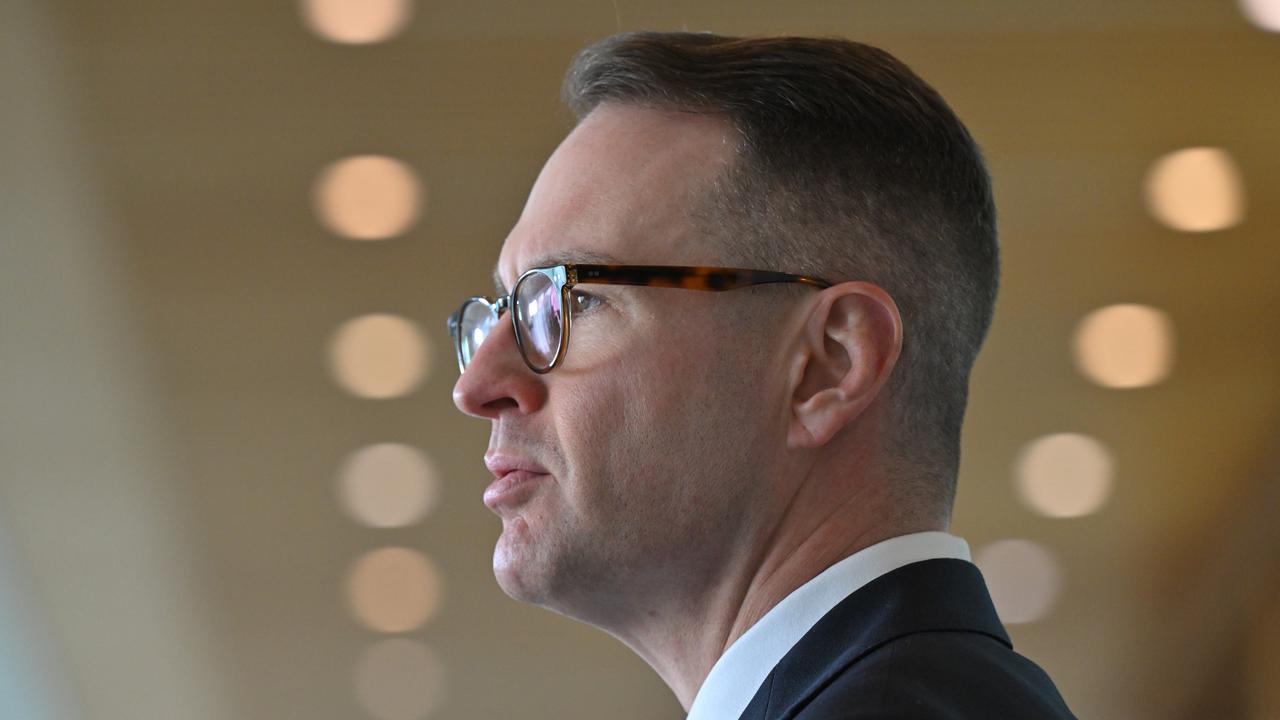
Latrobe University climate law expert Julia Dehm agreed, saying a future government would “certainly” be in breach of the Paris agreement if it went back on its promises.
Dr Dehm said a ruling from the International Court of Justice in July that all countries had a legal obligation to tackle the “urgent and existential threat” of climate change was an additional barrier to watering down Australia’s climate targets.
“There is the potential for states to take Australia to the ICJ alleging that it hasn’t fulfilled its international climate obligations,” she said, adding that a weaker emissions reduction goal would also cause reputational damage for the government.
Moderate Liberal senator Andrew Bragg has threatened to quit his role in the shadow ministry and move to the backbench if his colleagues decide to ditch net zero and withdraw from the Paris deal.
There’s speculation other Liberals could follow if the party makes such a move.
But Senator Bragg said he didn’t think the Liberals would leave the Paris agreement, because they were a party of government and not “fringe dwellers”.
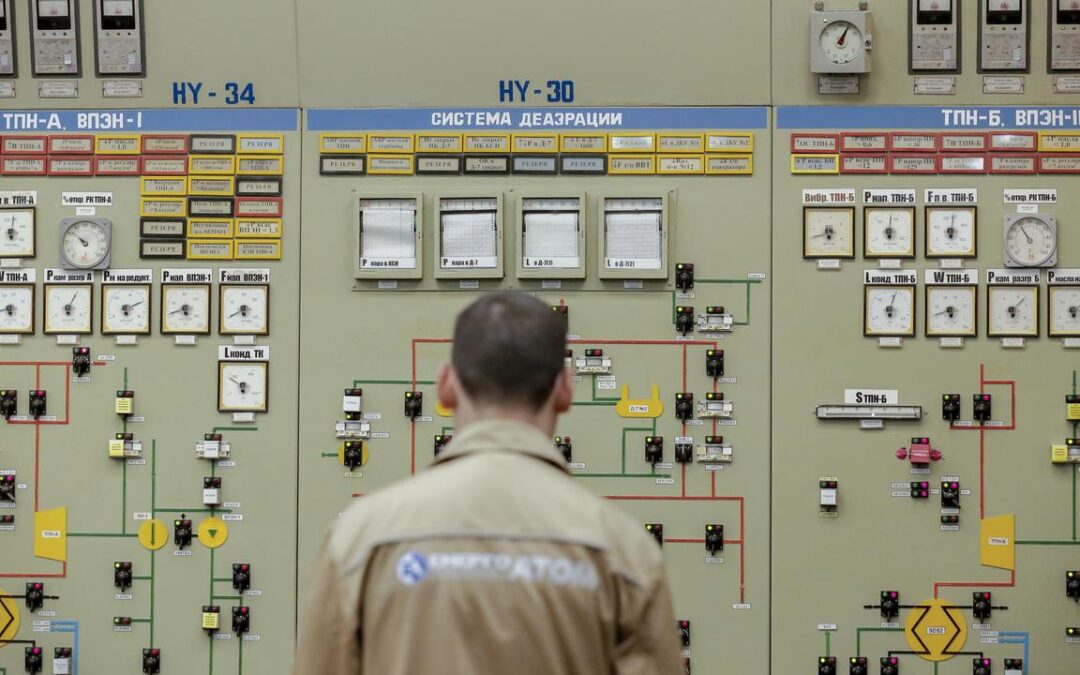
Ukraine anti-graft agency alleges energy corruption
Ukraine’s anti-corruption bureau has announced a vast investigation into the country’s energy sector, alleging a $US100 million ($A153 million) kickback scheme involving the state nuclear power company.
The bureau, a state agency that operates independently of the government, made the announcement as Ukraine braces for winter with its power sector under frequent fire by Russia and regularly facing power outages.
The agency alleged on social media that behind the scheme was a “high-level criminal organisation” led by a businessman and including a former adviser to the energy minister, nuclear power operator Energoatom’s head of security and four “back office” workers.
“In total, approximately 100 million USD ($A153 million) passed through this so-called laundromat,” the agency said.
None of the individuals was named in the statement.
Energoatom said in a statement on social media that anti-corruption officials were conducting searches in its offices on Monday, and it was cooperating with the investigation.
Ukraine’s energy minister Svitlana Hrynchuk said at a press conference on Monday evening that although she was unfamiliar with the details of the case, she was committed to ensuring a transparent investigation and that those found responsible should be held accountable.
“I hope that the transparency of the investigation will reassure our international partners,” she said.
Ukraine’s power system has been significantly damaged by a campaign of Russian bombardment in recent months, causing power cuts across the country as Moscow presses on with its war against its smaller neighbour.
Russia has not hit nuclear plants, but has hit substations connected to them, according to Ukrainian authorities.
The bureau published photographs of thick bundles of Ukraine’s hryvnia currency, US dollars and euros stuffed into bags and stacked on a table.
It did not specify who they belonged to.
“The minister’s adviser and the director of security at Energoatom took control of all the company’s purchases and created conditions under which all Energoatom’s contractors had to pay illegal benefits,” NABU’s chief detective, Oleksandr Abakumov, said.
He alleged that those involved in the scheme had discussed raising the kickback rate to 15 per cent in October during the construction of protective structures at the Khmelnytskyi nuclear power plant.
According to investigators, Energoatom’s counterparties were forced to pay kickbacks of 10-15 per cent to avoid having payments for services or goods blocked, or losing their supplier status.
“A strategic enterprise with an annual income of over 200 billion hryvnias ($A7.33 billion) was managed not by the proper officials, but by third parties who had no formal authority,” the statement said.
The anti-corruption bureau said it had conducted 70 searches and all its detectives had been involved in an investigation that had lasted 15 months and gathered 1000 hours of audio recordings.
Opposition lawmaker Yaroslav Zheleznyak, a prominent champion of the anti-corruption agency, said he had tabled a motion in parliament to seek the dismissal of energy minister Hrynchuk, as well as her predecessor, German Galushchenko, who is now justice minister.
Hrynchuk declined to comment on the motion, while Galushchenko did not reply to a request for comment.
In July 2025, large protests and international criticism forced President Volodymyr Zelenskiy to reverse course and restore the independence of Ukraine’s two main anti-corruption agencies following a government move to rein in their powers.
Eradicating graft and shoring up the rule of law are key requirements for Kyiv to join the European Union, which Ukrainians see as critical to their future as they fend off a Russian invasion.
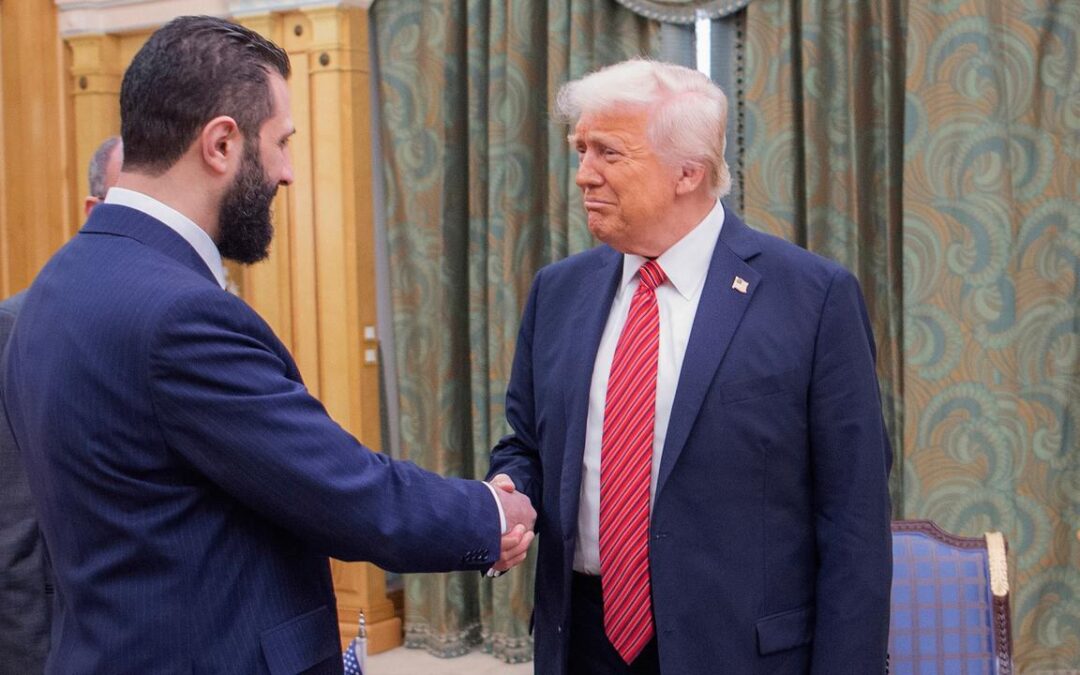
Trump hosts Syrian leader for first White House meeting
President Donald Trump is hosting Syrian President Ahmad al-Sharaa at the White House, welcoming the once-pariah state into a US-led global coalition to fight the Islamic State group.
Al-Sharaa arrived at the White House a little after 11:30 am local time on Monday and began his Oval Office meeting shortly after.
The meeting is closed to the press, and the Syrian president entered the building through West Executive Avenue, adjacent to the White House, rather than on the West Wing driveway used for other foreign leaders’ arrivals.
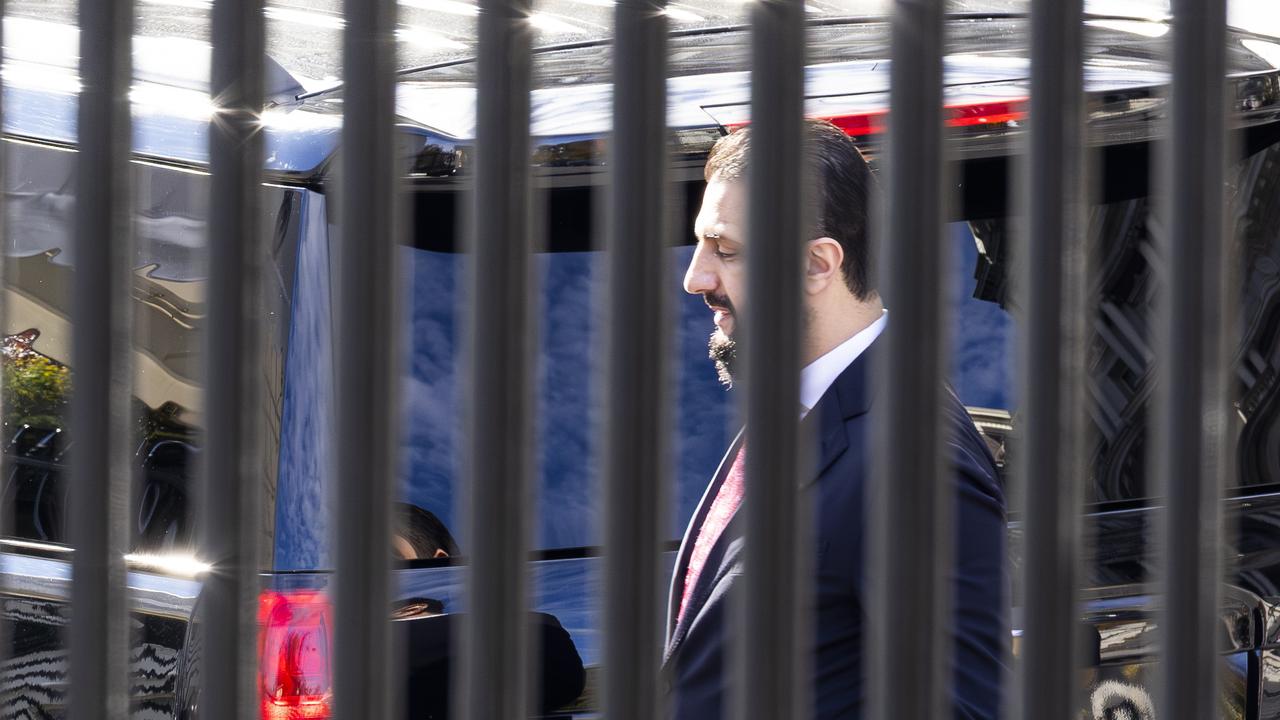
It’s the first visit to the White House by a Syrian head of state since the Middle Eastern country gained independence from France in 1946.
It comes after the US lifted sanctions imposed on Syria during the decades the country was ruled by the Assad family.
Al-Sharaa led the rebel forces that toppled Syrian President Bashar Assad last December and was named the country’s interim leader in January.
Trump and al-Sharaa — who once had ties to al-Qaida and had a $US10 million ($A15 million) US bounty on his head — first met in May in Saudi Arabia.
At the time, the US president described al-Sharaa as a “young, attractive guy. Tough guy. Strong past, very strong past. Fighter.”
It was the first official encounter between the US and Syria since 2000, when then-President Bill Clinton met with Hafez Assad, the father of Bashar Assad.
White House press secretary Karoline Leavitt said Monday’s visit is “part of the president’s efforts in diplomacy to meet with anyone around the world in the pursuit of peace”.
Trump, a Republican, has recently said that al-Sharaa is “doing a very good job so far” and that a “lot of progress has been made with Syria” since the US eased sanctions.
One official with knowledge of the administration’s plans said Syria’s entry into the global coalition fighting the Islamic State group will allow it to work more closely with US forces, although the new Syrian military and the Kurdish-led Syrian Democratic Forces in the country’s northeast had already been fighting the group.
Before al-Sharaa arrived in the US, the United Nations Security Council voted to lift sanctions on the Syrian president and other government officials in a move that the US ambassador to the UN, Mike Waltz, said was a strong sign that Syria is in a new era since the fall of Assad.
Al-Sharaa comes into the meeting with his own priorities.
He wants a permanent repeal of sanctions that punished Syria for widespread allegations of human rights abuses by Assad’s government and security forces.
While the Caesar Act sanctions are currently waived by Trump, a permanent repeal would require Congress to act.
One option is a proposal from Senator Jeanne Shaheen of New Hampshire, the top Democrat on the Senate Foreign Relations Committee, that would end the sanctions without any conditions.
The other was drafted by Senator Lindsey Graham, a hawkish Trump ally who wants to set conditions for a sanctions repeal that would be reviewed every six months.
But advocates argue that any repeal with conditions would prevent companies from investing in Syria because they would fear potentially being sanctioned.
Mouaz Moustafa, executive director of the Syrian Emergency Task Force, likened it to a “hanging shadow that paralyses any initiatives for our country”.